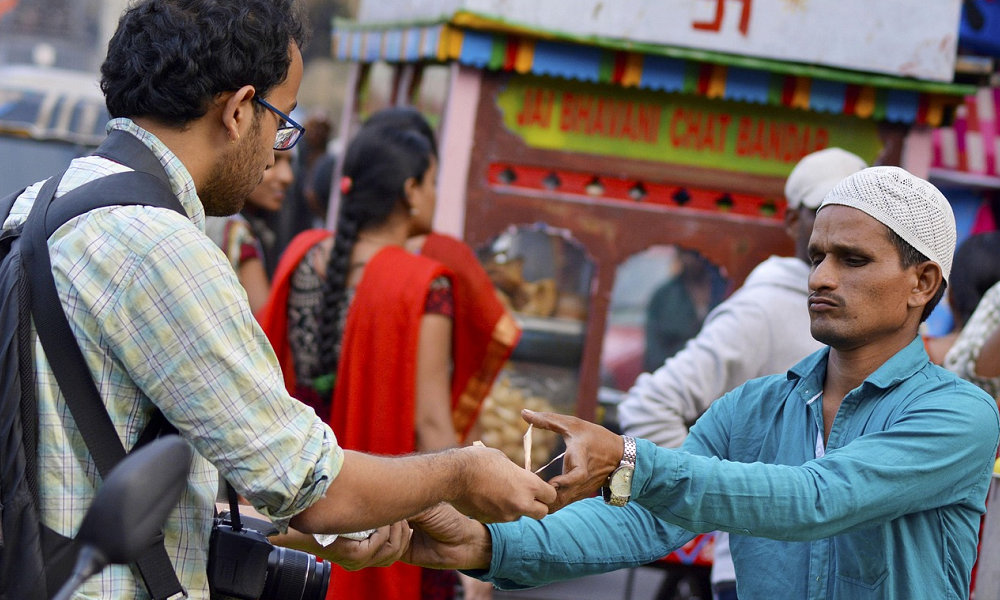Reviews
Understanding the Impact of Economic Conditions on Consumer Spending

Consumer spending plays a huge role in how an economy performs. In fact, in countries like the United States, it makes up about 70% of the entire economy (measured by GDP). This means the way people spend their money can influence everything from job growth to business profits.
But what affects how people spend money? The answer often lies in the overall economic conditions. When the economy is doing well, people tend to spend more.
When it’s not, they usually cut back. In this article, we’ll look at how different economic factors affect consumer spending and why it matters.
Why Economic Conditions Affect Spending
The amount of money people spend depends on two main things, how much money they have and how confident they feel about their future. If people have good jobs, stable incomes, and feel secure, they’re more likely to spend. If they’re worried about losing their job or prices going up too fast, they often hold back.
Economists use tools like:
- consumer confidence surveys
- employment data
- retail sales reports
This is to understand what’s happening with consumer spending. These tools help governments and businesses make better decisions.
Major Economic Factors That Influence Spending
Several key factors in the economy can directly change how people spend. Here are the main ones:
Jobs and Income
When more people have jobs and wages are rising, families usually have extra money to spend. This leads to more buying of goods and services, which helps businesses grow.
But during tough times like recessions when people lose jobs or wages don’t grow, families tend to save more and spend less. A good example is the 2008 financial crisis when millions lost their jobs and spending dropped sharply. The same happened early in the COVID-19 pandemic.
Inflation (Rising Prices)
Inflation means prices are going up. A small amount of inflation is normal and expected. But when inflation is too high, people can’t buy as much with the same amount of money.
For example, if gas, food, and rent all become more expensive, families have to cut back in other areas, like eating out, shopping, or taking trips. On the other hand, if inflation is low or prices are stable, people may feel more comfortable spending.
Interest Rates
Interest rates affect how much it costs to borrow money. When rates are low, it’s cheaper to take out loans for things like homes, cars, and credit cards. This usually encourages people to spend more.
When interest rates go up, borrowing becomes more expensive. This can lead people to delay big purchases and reduce spending. For example, higher mortgage rates can slow down the housing market.
Consumer Confidence
This refers to how optimistic or worried people feel about the economy and their personal finances. When confidence is high, people tend to spend more freely because they feel secure in their jobs and future income.
But when confidence drops maybe because of a natural disaster, political problems, or economic warnings people often start saving more and spending less. This slowdown can lead to even more economic problems.
Government Actions (Fiscal Policy)
The government can also influence consumer spending through things like tax changes, social programs, or stimulus payments. For example, during the COVID-19 crisis, many countries sent direct payments to households. This helped boost spending during a tough time.
On the flip side, if the government raises taxes or cuts spending, people might have less money in their pockets, which can lead to lower consumer spending overall.
How Businesses React to Consumer Spending
Companies watch consumer spending closely. When people are spending more, businesses may expand, hire more workers, and introduce new products. They might also raise prices if demand is high.
When spending slows down, businesses often take a more careful approach. They might cut costs, offer discounts, or focus on budget-friendly options. For example, during a recession, stores may promote value items over luxury products, and restaurants may offer more affordable meals to attract customers.
To better understand consumer spending, consult an expert. They can provide insight that can greatly help businesses, such as why there is an 84% rise in average online service spend.
Long-Term Changes That Affect Spending
While short-term economic changes matter, there are also long-term trends that influence how people spend money.
Rise of Online Shopping
The growth of e-commerce has changed how people buy things. It’s now easier than ever to shop online, compare prices, and find deals. This shift became even more common during the pandemic, when many stores were closed or had restrictions.
Demographics and Generational Differences
Different age groups spend money in different ways. Younger people (like Millennials and Gen Z) often spend more on experiences, like travel and entertainment, while older adults may focus on healthcare and savings. Also, changes in population-such as aging populations in developed countries can shift the overall spending trends in the economy.
Sustainability and Ethics
Many consumers are now thinking more about how their purchases affect the planet and society. Some are willing to spend more on eco-friendly or ethically made products, even during uncertain economic times. This growing focus on sustainability is influencing what companies offer and how they market their products.
The Role of Savings in Consumer Spending
Savings play a major part in how much people spend-especially during uncertain times. When people are worried about the economy, they often put more money into savings accounts and reduce unnecessary purchases. This is known as the “precautionary savings” effect.
While saving is good for individual households, too much saving at once can slow down the economy. If millions of people cut back on spending at the same time, businesses see fewer sales, which may lead to layoffs or reduced services.
On the flip side, when people feel confident about their finances, they may save less and spend more, helping the economy grow. Striking the right balance between saving and spending is key to a healthy economy.
Consumer Spending is Very Important in the Economy
Consumer spending is deeply connected to the health of the economy. When people feel financially secure, have jobs, and aren’t worried about rising prices, they tend to spend more. This spending supports businesses, creates jobs, and helps drive economic growth.
But when the economy hits a rough patch, consumer spending often slows. This can create a cycle where businesses struggle and the economy weakens further.
Ultimately, strong consumer spending and a healthy economy are closely intertwined. When people have the means and confidence to spend, everyone benefits.

-

 Legal6 days ago
Legal6 days agoMichigan man JD Vance sentenced to 2 years for threatening Trump and JD Vance
-

 Politics7 days ago
Politics7 days agoU.S. to designate Maduro-linked Cartel de los Soles as terrorist organization
-

 Health7 days ago
Health7 days agoCambodia reports fatal H5N1 bird flu case in 22-year-old man
-

 World4 days ago
World4 days agoHurricane Melissa registered 252 mph wind gust, breaking global record
-

 Legal4 days ago
Legal4 days agoWoman in critical condition after being set on fire on Chicago train
-

 Politics7 days ago
Politics7 days agoEpstein survivors release PSA calling on Congress to release all files
-

 Legal4 days ago
Legal4 days ago1 dead, 2 injured in shooting at Dallas Walmart parking lot
-

 Legal3 days ago
Legal3 days agoSuspect in San Diego stabbing shot by authorities after fleeing into Mexico



